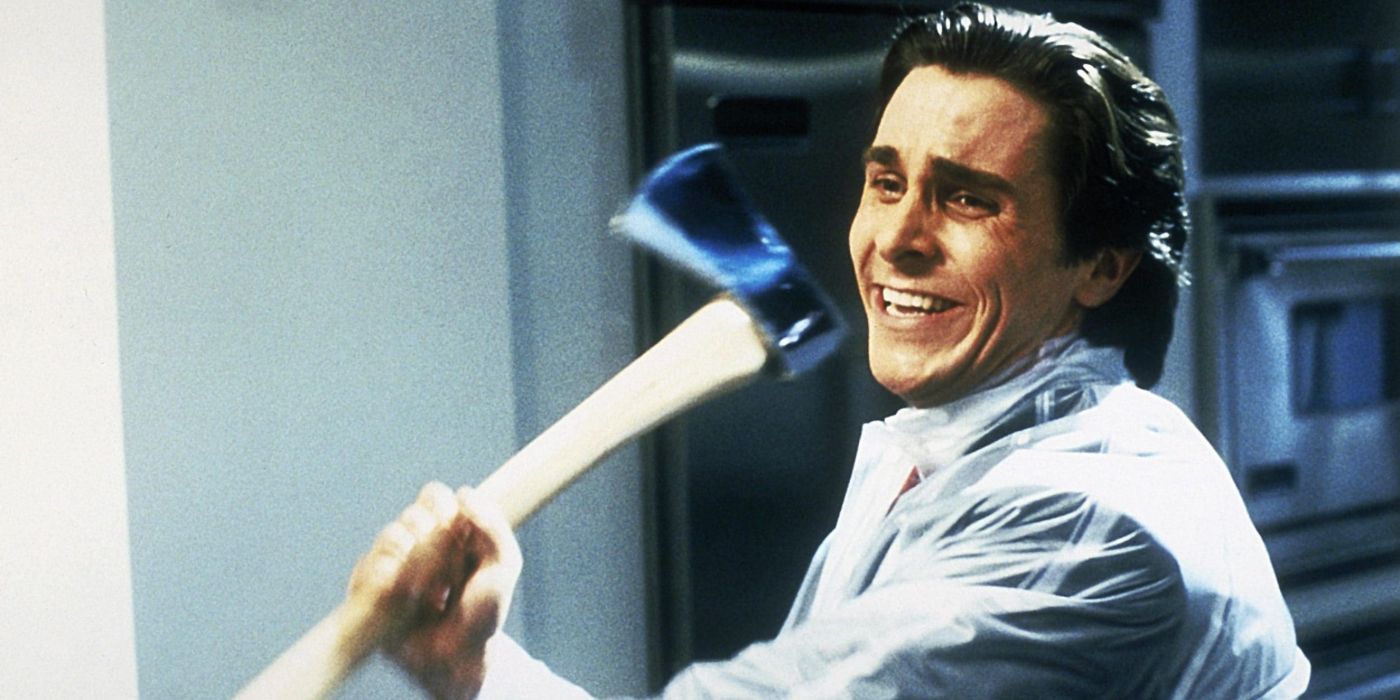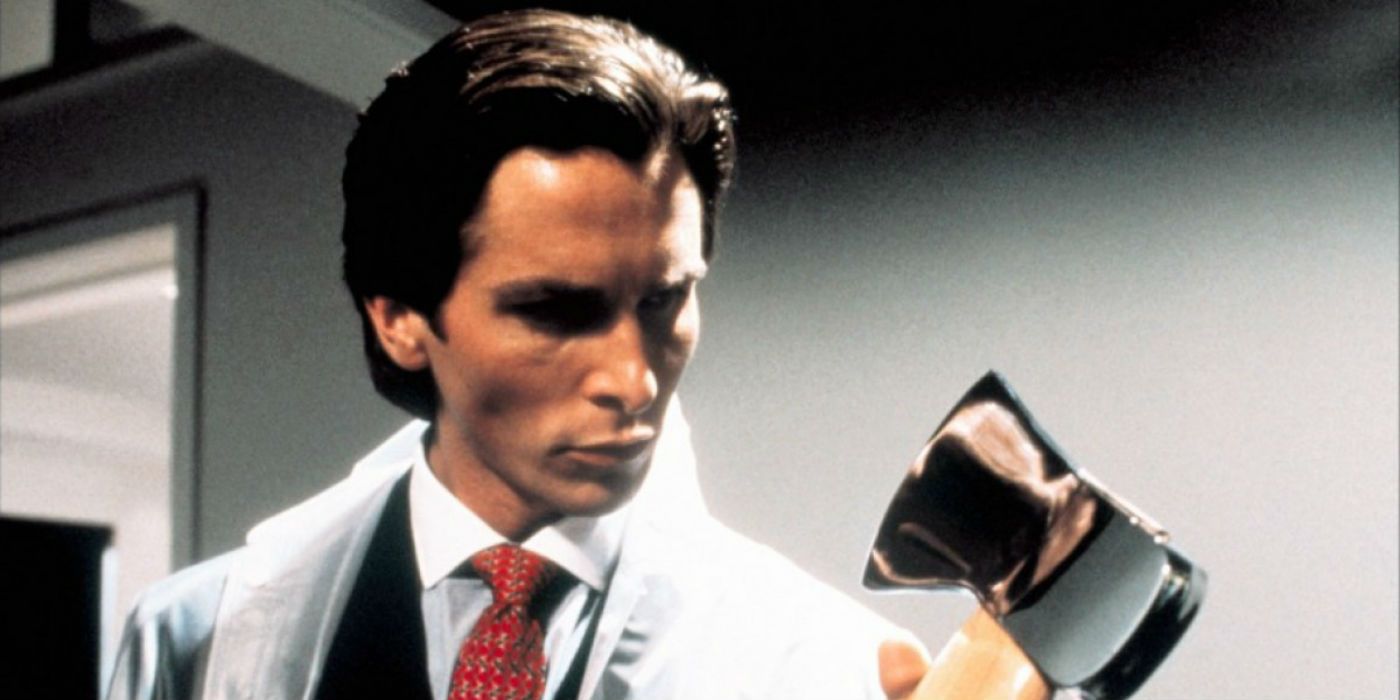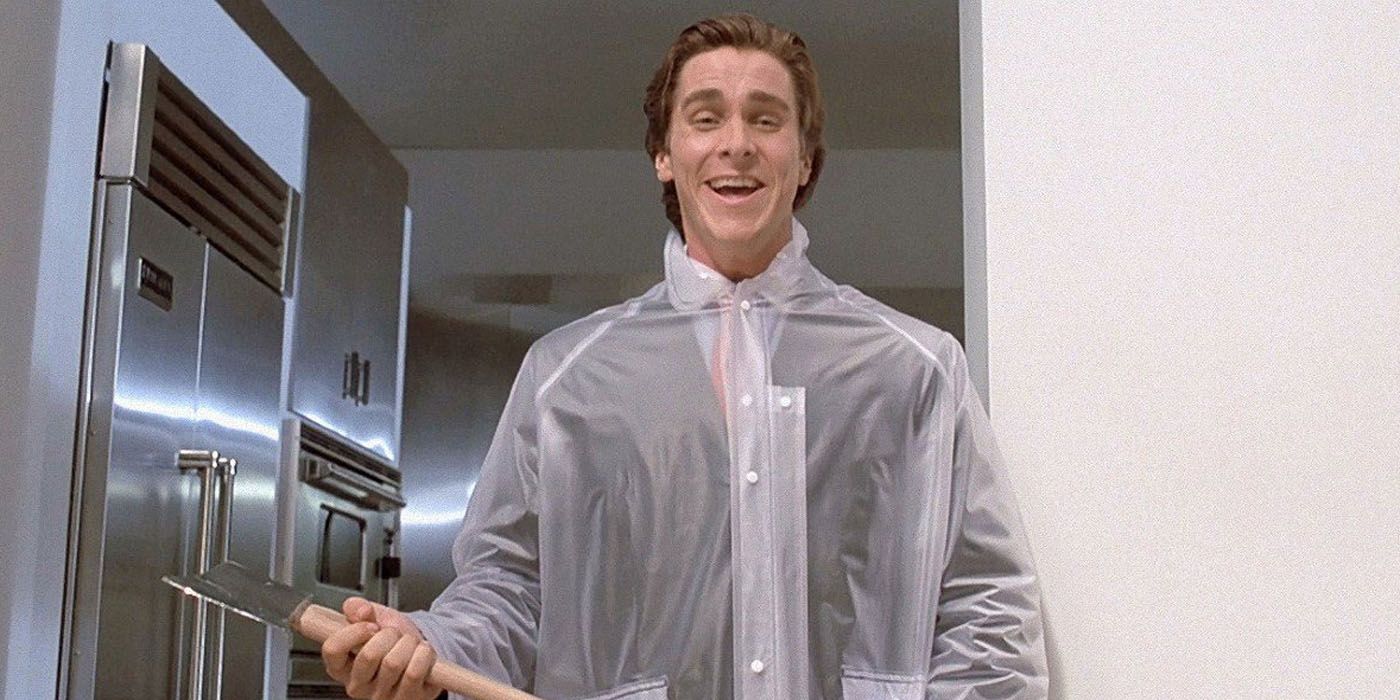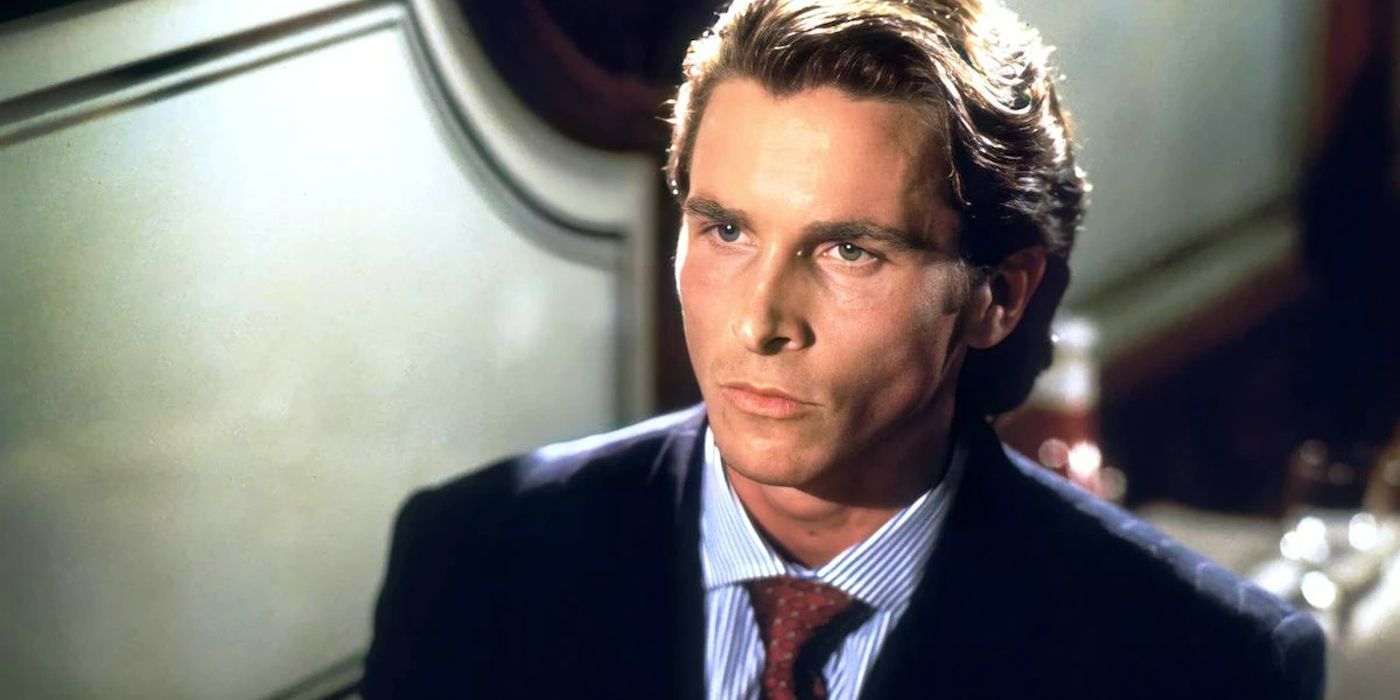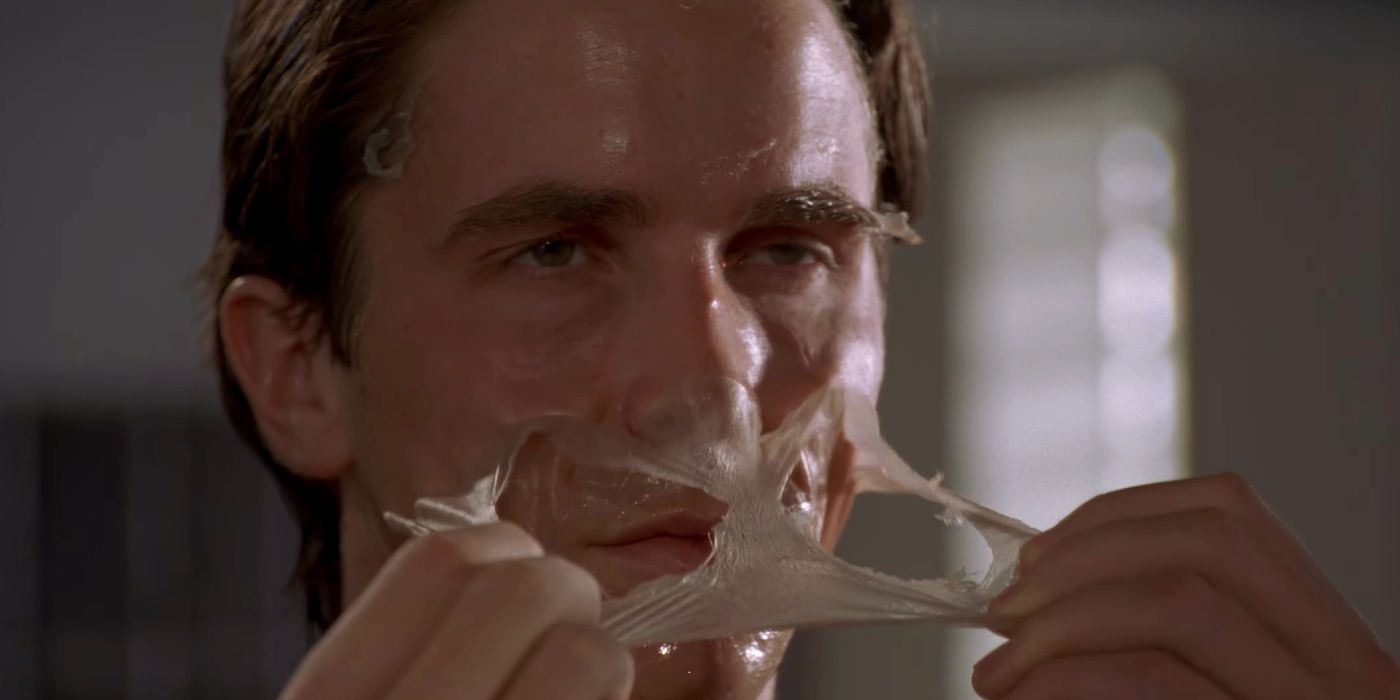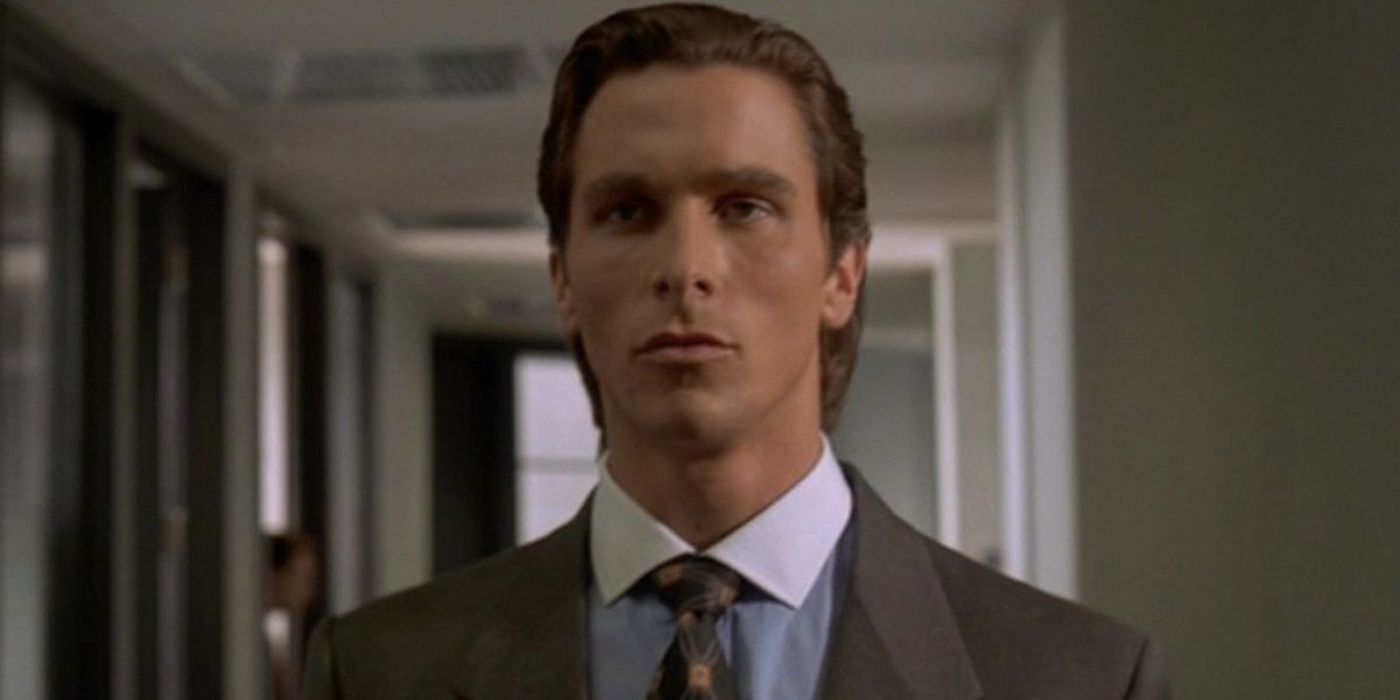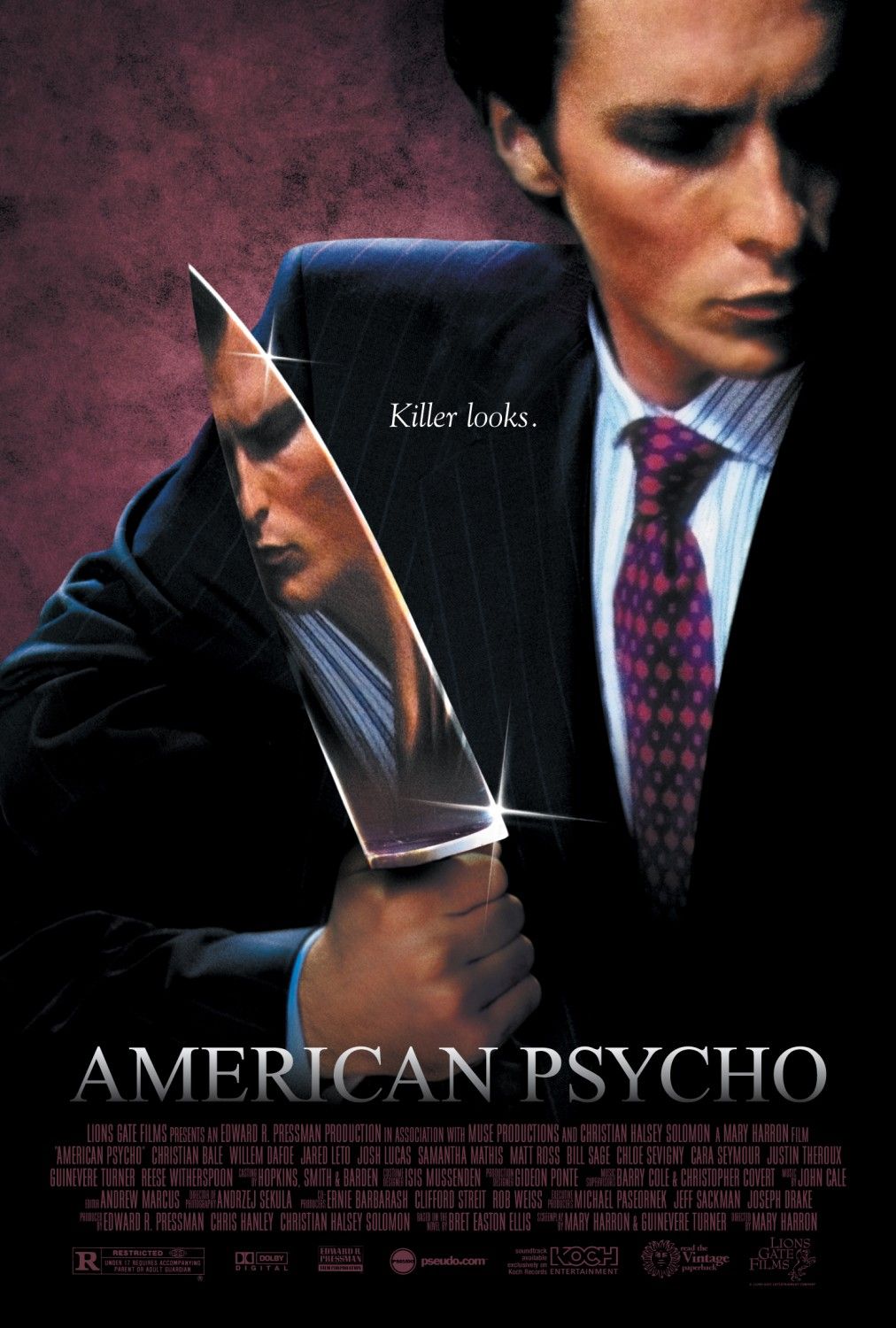Summary
- American Psycho’s ambiguous ending challenges viewers to question not just Bateman’s actions, but also the motives of those around him.
- The film serves as a commentary on corporate greed, using Bateman’s violent sadism as a metaphor for the insatiable thirst for profit.
- Bateman’s character represents an unreliable narrator undergoing an identity crisis, showcasing the moral awakening and descent into depravity.
The real American Psycho meaning is hard to explain, as the film’s deeply psychotic protagonist and ambiguous ending make its general message somewhat difficult to unravel. Based on the 1991 Bret Easton Ellis novel, American Psycho follows New York investment banker and unchecked serial killer Patrick Bateman. Christian Bale’s performance as Patrick Bateman is iconic and secured American Psycho a cult following that’s endured over two decades. Patrick Bateman indulges his most violent urges in American Psycho, acting on every sadistic impulse without any consequence in his Wall Street life.
The film was every bit as controversial as Ellis’ novel — little surprise when Ellis himself considered the literary Bateman’s descent into depravity and true madness too shocking for cinema. American Psycho culminates on a decidedly ambiguous note, which calls many of the previous events of the narrative into question. Many viewers come to the conclusion American Psycho made use of the oft-bemoaned “it was all a dream” trope. However, director Mary Harron stated otherwise. Instead, American Psycho explained Bateman’s true nature, rephrasing the entire story in a new light, even if it is easy to miss.
Related
American Psycho Soundtrack: Every Song & When It Plays
American Psycho’s Patrick Bateman might be a walking red flag, but he has quite a diverse taste in music and an exquisite record collection.
American Psycho Uses Real Violence As A Stand-In For Corporate Greed
Patrick Bateman’s Violent Sadism Is Why He’s A Cultural Icon
American Psycho’s meaning is a commentary on the inherent violence of corporate greed. Christian Bale’s movie roles are carefully picked, and he has a preference for stories that dig deep into human nature.Patrick Bateman’s casual cruelty and violent sadism are key elements of his characterization and why he’s such a cultural icon. The carnage he causes is a direct example of the American Psycho explained metaphor — violence as a stand-in for corporate greed. The murder spree in American Psycho starts with Bateman being selective and deliberate but escalates for increasingly trivial reasons.
This directly parallels the callous corporate violence Bateman enacts on a whim every day on Wall Street, making decisions that cause financial ruin for others just to brag in the boardroom. American Psycho explained that its violence represents rampantly spiraling greed. Bateman’s bloodlust is as insatiable as his colleagues’ thirst for profit. His murder of Paul Allen is a key piece of evidence for this, as it represents Bateman’s willingness to get ahead by killing his colleagues. Bateman gets away with his actions, proving the indifference that others in his social circles feel towards that level of violence.
Bret Easton Ellis published the
American Psycho
novel in 1991.
On a superficial level, the violence of American Psycho may seem excessive and gratuitous where the story’s concerned, but that the violence is so excessive and goes largely unnoticed hits on the absurdity of Bateman’s sadism — and thus the absurdity of real-life Wall Street’s. Through its brilliant cinematic narrative, American Psycho explained real-life corporate greed through the much more visceral and relatable elements of raw, unhinged violence. Notably, abandoning these compelling themes is why the sequel American Psycho 2: All American Girl didn’t do as well as the movie.
American Psycho Is Actually About Patrick Bateman’s Moral Awakening
Bateman Begins To Make Sense Of The Person He Has Become
What’s less obvious is that American Psycho is actually about Patrick Bateman gaining – not losing – his moral clarity. After Bateman murders his co-worker, Paul Allen, American Psycho explained that Bateman’s grip on his double life begins to unravel, as the veil between his two personas begins to slip. As this threatens to consume Bateman entirely, American Psycho ends with him attempting to force others to hold him accountable for his actions. Indeed, it’s clear that the film’s story follows Bateman as he begins to make sense of the person he has become.
When he can no longer contain the casual cruelty of his hidden persona, his life begins to fall apart, although none of his colleagues seem to care — another moment American Psycho’s theme of corporate callousness shows. The bodies disappearing from Paul’s apartment in American Psycho explained that the world around Patrick doesn’t care about his actions, even as he attempts to come clean. Bateman regains his senses while the world remains oblivious to its own greed and corruption.
Patrick Bateman Is Meant To Be An Unreliable Narrator (Because Of His Identity Crisis)
The Identity Crisis Is At The Core Of Bateman’s Psychosis
One of the most common misunderstandings about American Psycho stems from its ambiguous ending painting Patrick Bateman as an unreliable narrator. However, the fact that the ending calls Bateman’s integrity into question is exactly the point, as it feeds into one of the film’s most consistent themes: identity. A key piece of evidence for this is during American Psycho’s mistaken identity moment when Paul confuses Bateman for Marcus Halberstram, triggering the violent murder of Paul Allen (and Bateman’s subsequent moral awakening).
This identity crisis is at the core of his psychosis…
American Psycho explained that the idea that Bateman is in the throes of an identity crisis also fits with the film’s message about greed. Though Bateman has been enjoying the affluent lifestyle his own greed and corruption have bought him, he’s no longer sure exactly who he is. This identity crisis is at the core of his psychosis, and though it makes him an unreliable narrator, it doesn’t necessarily do so in the way that the most common interpretation of American Psycho‘s ending would suggest.
Why American Psycho’s Ambiguous Ending Doesn’t Matter
Bateman’s Friends & Colleagues Are All As Guilty As He Is
The ending of the movie is deliberately ambiguous. The hidden meaning of American Psycho wouldn’t be such a talking point if it wasn’t, after all. However, it’s not intended to call Bateman’s actions into question, but rather his motives. One of the reasons that American Psycho gets better upon rewatching is that the finer details point towards a far more satisfying conclusion: the ambiguity of the ending is exactly the point.
As American Psycho explained, Patrick Bateman is an unreliable narrator, so it’s easy to assume that the murders didn’t happen. Instead, the ending should call into question why no one else is addressing Bateman’s troubling comments, and that’s where its real ambiguity comes in. The fact that none of Bateman’s friends and colleagues are willing to entertain his admission of guilt as serious is evidence that they are all as unreliable as he is and that all of American Psycho‘s characters are every bit as guilty as Bateman.
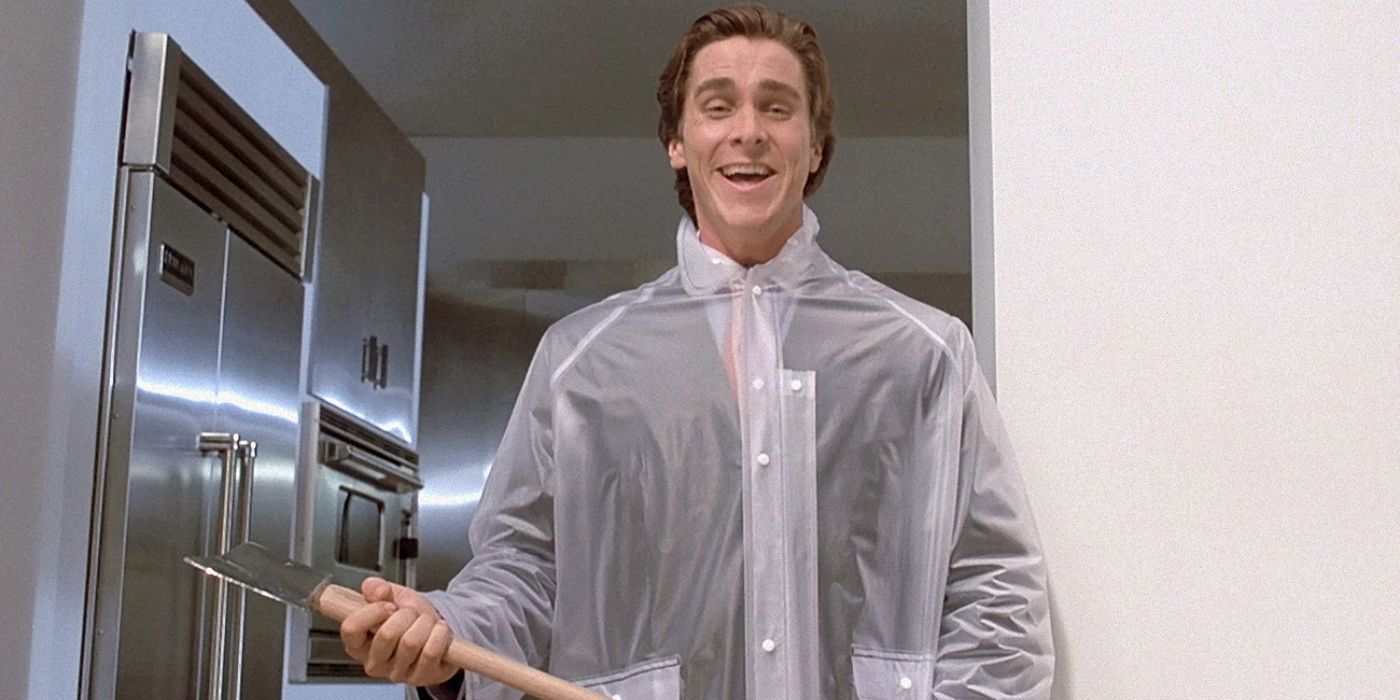
Related
American Psycho Cast & Character Guide
American Psycho is a brutal American satire that stars Christian Bale as a businessman turned serial killer, alongside a great supporting cast.
Misinterpreting American Psycho May Be Fueling Extremism
Patrick Bateman Has Been Compared To Todd Phillips’s Joker
American Psycho‘s success has raised questions about whether Patrick Bateman’s character actually fueled extremism — a concern that often arises when a movie complexly examines morality using violence as a lens. American Psycho was released back in 2000, and it’s interesting how decades later, movies like the controversial 2010s movie Joker still have to tackle the same issues (and rebuff the same critique).
Like Joker director Todd Phillips, American Psycho director Mary Harron has had to deal with not just the controversial audience and critical reception, but also the possibility that misinterpretations about the movie could be reinforcing anti-social movements and ideologies. Harron explained (via Vulture) how Bateman and the Joker, both incredibly violent psychopaths, are so impactful because they naturally put audiences in an uncomfortable position. As Harron said:
“Even though I think the movie is pretty clear — this guy is psycho — you’ve followed him through his vulnerability and his being humiliated and neglected and used by the world and the people around him. And there’s an element where you’re identifying with him. The same conversation happens over and over every so often with a film that is upsetting or disturbing, which is a part of what movies are and do. Then everything settles down. It’s crazy to me that everyone talks about
American Psycho
in such reverent terms.”
While American Psycho and similar movies like Joker and Fight Club critique masculine toxicity, it’s plain they can inadvertently inspire these same anti-social elements in society. Sadly, it seems that American Psycho explained Patrick Bateman’s psychotic nihilism as endearing by some incredibly lost individuals — an aspiration, rather than a warning. That said, just like how the controversy about Joker and Fight Club actually helped prop up these movies, the social criticisms do the same for American Psycho.
While the iconic status of these movies is well-deserved, particularly because of how their respective controversies reveal how deeply they tap into human nature, it’s still worth examining how these highly influential cultural products can change people’s actions and ways of thinking. Perhaps future movies like American Psycho should come with a clear disclaimer that it’s a critique of the behaviors shown and not an endorsement. Even if Patrick Batman has inspired real-life extremism though, the fault doesn’t lie with director Mary Harron or the movie itself — no movie is responsible for real-life violence.
What Christian Bale Thinks Of American Psycho’s True Meaning
Bale Spent Time With Real-Life Traders Who Loved Patrick Bateman
American Psycho explained some of Bateman’s most unsavory views and practices, but what does Christian Bale think of his role as the iconic character? Sitting down with GQ, Bale discussed some of his most prolific acting roles, Patrick Bateman came up. To prepare for the role, Bale spent some time on Wall Street at the NYC stock exchange and got to experience what it was like on the trading floor. He had various conversations with the men that American Psycho was supposed to be depicting, and some of their comments turned out to be troubling.
“[…] but the guys on the trading floor, when I arrived there before making the film, I got there and a bunch of ’em, they were going ‘oh yeah, we love Patrick Bateman’. And I was like, ‘yeah, ironically, right?’, and they were like, ‘what do you mean?’”
The remarks of these individuals are certainly worrisome. American Psycho was meant to critique toxic masculinity, and Patrick Bateman was never meant to be a sympathetic character. The fact that people in positions of power and affluence could sympathize and even “love” Bateman’s character proves that there’s a larger problem beneath the surface. While the people on the trading floor that Bale met may find something positive in Bateman’s character, at least The Dark Knight actor understands what Patrick Bateman from American Psycho was supposed to represent.
How The American Psycho Meaning Compares To The Book
Bateman Is More Of A Serial Killer In The Book
There were several differences between the American Psycho book and movie, some of which changed the American Psycho meaning. In the movie, the murders were mostly confined to the corporate world and Patrick Bateman’s personal life.
However, in the book, Bateman kills more mercilessly and will often kill people who have nothing to do with the themes of corporate greed and his own isolation. At one point in the book, he kills a man who hits on him in Central Park. He not only kills the man because of his sexuality, but he murders the man’s dog as well.
He killed 23 people in the movie and murdered over 50 in the book
One disturbing scene in the book comes with the murder of a young child at the zoo. In the book, Bateman slices the neck of the boy, enjoying the moment. However, later he regrets this and feels that he killed someone who had no real mistakes to pay for. This made him seem like someone killing people who deserved it, and it showed that when he regretted a kill that broke that entire mantra. He killed 23 people in the movie and murdered over 50 in the book, changing the American Psycho meaning to something even darker.
Does The American Psycho Sequel Impact The Original Film’s Ending?
What Does The Sequel Mean For The Ending’s Meaning?
There was a little-seen American Psycho sequel that arrived in 2002, just two years after the first movie was a huge success. The second movie was a cash grab, as it went straight to video, had nothing to do with Patrick Bateman, and was denounced by author Bret Easton Ellis. It starred Mila Kunis as the new killer, and while the movie referenced Patrick Bateman, it mostly has been forgotten over time. Mila Kunis even seems embarrassed by the movie and has since ridiculed it.
“When I did the second one, I didn’t know it would be American Psycho II. It was supposed to be a different project, and it was re-edited, but, ooh … I don’t know. Bad.”
This clearly means that Mila Kinis was making a standalone thriller movie, and the producers decided to throw the American Psycho name on it and advertise it as a sequel — after the fact. So, what does this mean for Patrick Bateman? This movie destroys the ambiguous ending of the first American Psycho and says that Patrick Bateman was a serial killer all along. In a flashback scene, Patrick Bateman kills the babysitter of Kunis’s character and dissects her corpse. Kunis’s character escapes and grows up to be a serial killer, too.
American Psycho II
was a straight-to-video release.
This moment actually harms Patrick Bateman’s character. He killed people based on the yuppie business-centric storylines from that first movie. This shows he was just a basic serial killer who even targeted babysitters, which is not what Bateman was about. Sadly, Lionsgate said that the movie is an officially licensed sequel, so that makes this canon, and it also completely ruins American Psycho’s ending and the character arc of its killer, Patrick Bateman.



